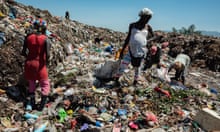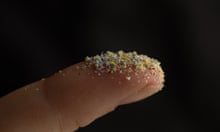The impact of bottled water on natural resources is 3,500 times higher than for tap water, scientists have found.
The research is the first of its kind and examined the impact of bottled water in Barcelona, where it is becoming increasingly popular despite improvements to the quality of tap water in recent years.
Research led by the Barcelona Institute for Global Health (ISGlobal) found that if the city’s population were all to drink bottled water, this would result in a 3,500 times higher cost of resource extraction than if they all drank tap water, at $83.9m (£60.3m)a year.
Researchers also found the impact of bottled water on ecosystems is 1,400 times higher than tap water.
The authors concluded that the reduction in environmental impacts more than offset the small risk of bladder cancer associated with drinking tap water. The process of treating drinking water generates low levels of trihalomethanes (THM), which have been associated with a higher risk of bladder cancer. THM levels in drinking water are regulated in the EU.
The lead author of the study, the ISGlobal researcher Cristina Villanueva, said: “Health reasons don’t justify the wide use of bottled water. Yes, strictly speaking, drinking tap water is worse for local health, but when you weigh both, what you gain from drinking bottled water is minimal. It’s quite obvious that the environmental impacts of bottled water are higher compared to tap water.”
In the US, 17m barrels of oil are needed to produce the plastic to meet annual bottled water demand. In addition, bottled water in the UK is at least 500 times more expensive than tap water.
Villanueva added: “I think this study can help to reduce bottled water consumption, but we need more active policies to change that.
“For example, in Barcelona, we could have more education campaigns to make the public aware that the health gains from drinking bottled water are minor compared to the environmental impacts. We need to improve access to public water, to public fountains, to public buildings where you can bring your own bottle and don’t need to buy one. We need to facilitate access to public water in public streets.
“People trust bottled water because advertisers have done a good job of convincing people it’s a good option, so we need the effort on the other side.”









